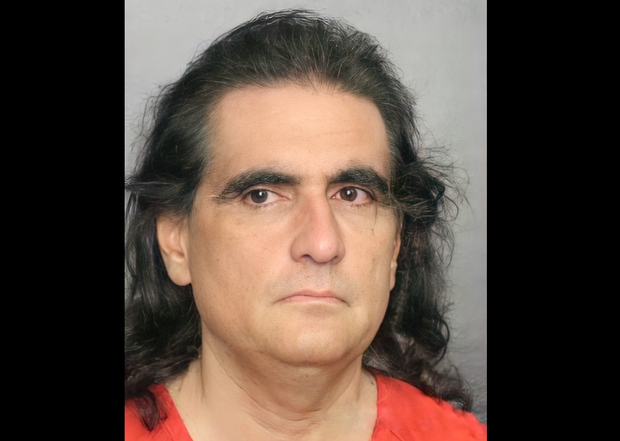Washington — The Biden administration has secured a deal with Venezuela that would see the release of one of Venezuelan President Nicolás Maduro’s close allies from U.S. custody in exchange for at least eight Americans held in Venezuela, including some who are designated as wrongfully detained, according to three current and former U.S. officials familiar with the matter. The deal is expected to include additional individuals in Venezuelan custody.
As has been the case with previous prisoner exchanges, the swap is likely to take place in a third country.
The president ignored shouted questions about the swap as he was leaving the White House Wednesday morning.
The Maduro ally, Colombia-born Alex Nain Saab Morán, was charged in Florida in 2019 for money laundering and was arrested in 2020 in the Republic of Cabo Verde while en route to Iran. Saab was extradited to the U.S. the next year to face criminal prosecution. He pleaded not guilty, and his attorneys have since been trying to get his case dismissed by claiming diplomatic immunity.
Broward County
Federal prosecutors alleged Saab and another co-conspirator bribed Venezuelan officials to secure illegal business advantages and laundered money. Beginning in 2011, Saab allegedly entered into a contract with the Venezuelan government to construct low-income housing and then submit false documents for some $350 million in reimbursements, investigators said. He was accused of using the government-controlled currency exchange system to transfer the funds into the U.S. from Venezuela and then to foreign accounts.
In 2019, the U.S. sanctioned Saab and accused him of exploiting the Venezuelan people to enrich himself and other leaders tied to Maduro as part of a corrupt bribery scheme, allegedly misusing government-controlled industries for their benefit.
Three Americans in Venezuela — Eyvin Hernandez, Jerrel Kenemore and Joseph Cristella — have been designated as wrongfully detained by the State Department. Another American, Savoi Wright, was recently picked up by Venezuelan authorities.
In a letter sent to the White House earlier this month and exclusively obtained by CBS News, Hernandez pleaded with President Joe Biden to secure his release.
“I’ve been held in captivity now for approximately 20 months, and there is nothing I want more than my own liberty and the liberty of my fellow brothers and sisters who are currently being held in captivity with me,” Hernandez wrote.
Kenemore, in a separate recording obtained by CBS News, made a plea from prison for “maximum positive pressure” on Joe Biden, saying that there is “a deal on the table” to exchange prisoners, including one very special one. Sources familiar told CBS news that the high-interest person was Saab.
He did not indicate how he knew of the potential deal or who asked him to share the details. It is not clear if that recording was coerced.
Saab’s U.S. prosecution sparked an outcry from Venezuela’s government and activists in the U.S., and his defense team embarked on a concerted legal effort to get the case against him dismissed in federal court. They argued in court documents that he was acting as a Venezuelan special envoy working with Iranian officials at the time of his arrest and should be shielded from prosecution for reasons of diplomatic immunity.
Saab is still listed as presently being held in federal custody in Miami, according to the Bureau of Prison’s website. Saab’s defense attorney, Neil Schuster, has not responded to CBS News’ requests for comment.
Venezuela’s Maduro regime presents one of the vexing geopolitical crises in America’s backyard, given that it is the source of the largest migration crisis in the Western Hemisphere and increasingly close to both Iran and Russia. During the Trump administration, the U.S. indicted Maduro and other high-profile government officials in 2020 for crimes related to narco-terrorism, money laundering and drug trafficking.
In October, Venezuela’s government agreed to some guarantees that would open its 2024 presidential election to opposition candidates. The deal negotiated by Norway, sometimes referred to as the “Barbados Agreement,” represented a step toward the Biden administration’s calls for open elections and its first steps were to be completed by Nov. 30.
To encourage further progress toward fair elections, the U.S. lifted some sanctions on Venezuela, allowing the sale of oil, gas, and gold. However, the State Department warned that if Venezuela did not open its elections to opposition candidates and begin to free wrongfully detained U.S. nationals and Venezuelan political prisoners by Nov. 30, the lifted sanctions would be reinstated. When that deadline passed, the State Department said the U.S. was “deeply concerned” by the lack of progress on the release of detained individuals but did not snap back sanctions.
The U.S. and Venezuelan governments have previously exchanged prisoners, including in October 2022, when seven wrongfully detained Americans were released from Venezuela in a prisoner swap for two nephews of Maduro’s wife. Five of the Americans were members of the so-called “Citgo 6,” a group of oil executives from the Houston-based Citgo refining company. They had been held in Venezuela for five years.
Last December, the U.S. agreed to swap a Russian arms dealer known as the “Merchant of Death” to secure the release of WNBA player Britney Griner, who was detained at a Russian airport in February and later pleaded guilty to charges stemming from the discovery of cannabis-derived oil cartridges in her luggage. Griner said she didn’t mean to bring the cartridges with her when she traveled to the country to play in a Russian basketball league during the WNBA offseason.
